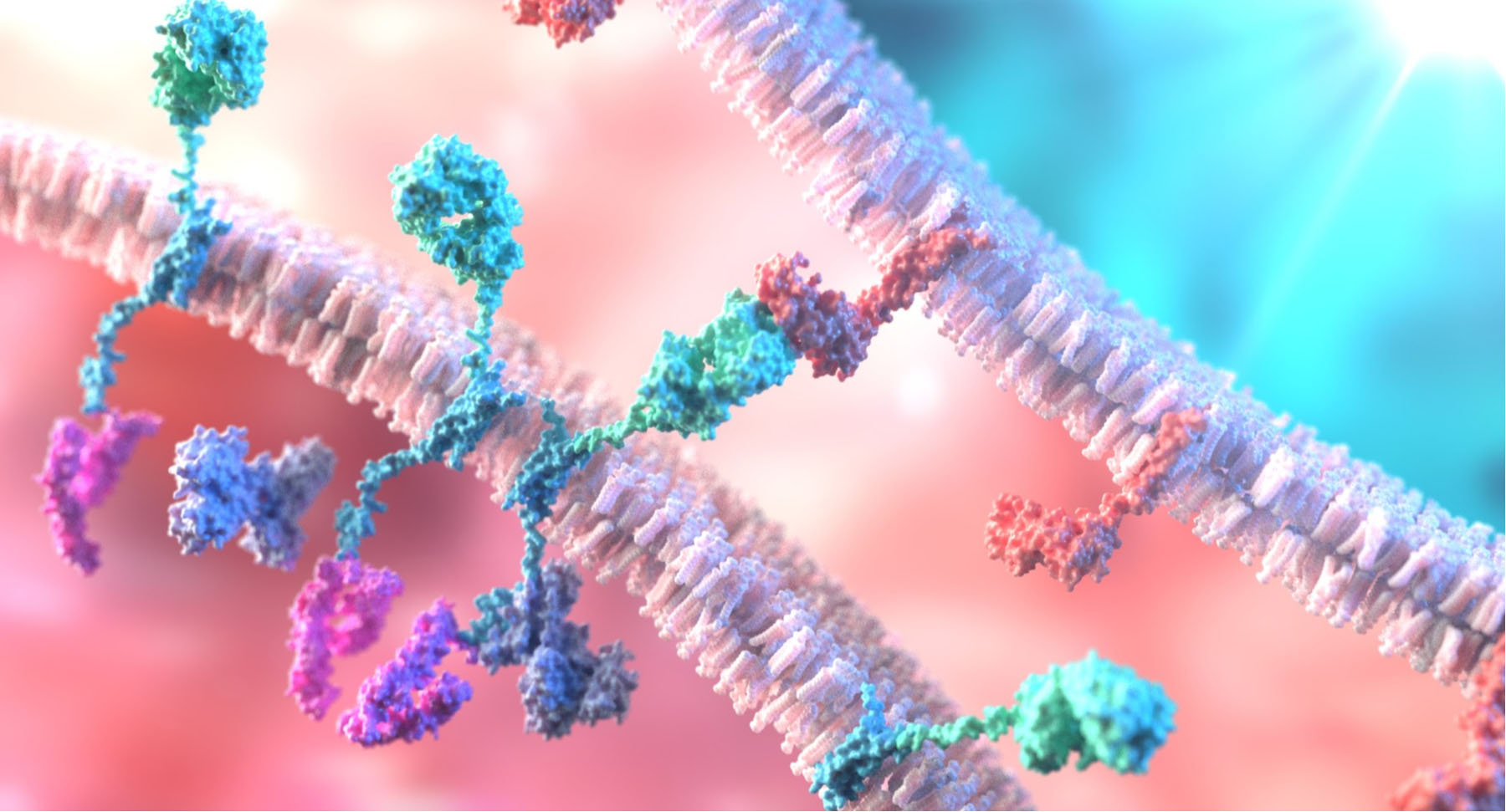A promising gene immunotherapy, CAR T-cell therapy, has emerged as a new, cutting-edge treatment to fight rare blood cancers. CAR T therapy involves harvesting T cells, part of the immune system, from a patient’s blood. Scientists then add to these cells a lab-made receptor, known as a chimeric antigen receptor (CAR), which recognizes proteins on cancer cells. The treatment provider then infuses these new, reengineered CAR T-cells into the patient. The T-cells rely on the CAR to identify cancer cells, so they can ultimately attack and kill them.
CAR T therapies are currently approved to treat aggressive, refractory non-Hodgkin’s lymphoma and relapsed or refractory acute lymphoblastic leukemia (ALL). Under current FDA guidelines, oncologists administer CAR T therapy after patients have undergone at least two lines of traditional chemotherapy. Clinicians expect upcoming CAR T therapies to treat other blood cancers—including multiple myeloma, which showed recent promising Phase III clinical trial results.
Given their high degree of specialization and personalization, patients in need of these life-saving treatments can undergo therapy at a very limited pool of medical centers. In fact, approximately 150 treatment centers across the nation offer expertise in cellular therapies—and about 100 of those currently offer CAR T.
Of course, as additional life sciences companies launch their unique CAR T therapies in the next few years, we expect the number of institutions that offer this treatment to grow. Manufacturers will need to address two big questions surrounding how to build and motivate a CAR T-focused sales force:
- How can the commercial team ensure CAR T therapy reaches patients who need it most?
- How can account managers educate prescribers and providers—oncologists, hematologists, and nurses—on the procedure for this new therapy and the benefits it offers to patients?
To answer both these questions, commercial leaders must focus on hiring CAR T therapy account managers who can effectively navigate the complexities of the therapy area and treatment process. Because CAR T is much more involved for both the patient and the physician compared to other therapies, established and emerging life sciences companies can’t simply reallocate a portion of the overall sales force to this newer therapy. Instead, they must thoroughly assess sales reps to identify those with the unique skills required to support CAR T therapies.
Qualify the Investment
Commercial teams should start by prioritizing treatment centers based on their likelihood to adopt the company’s CAR T therapy. Life sciences companies can begin with centers that conduct bone marrow transplants; a high volume of bone marrow transplants suggests these centers have the capability to offer the therapy and may already offer a different CAR T therapy. Manufacturers should also analyze referral patterns and distribute their treatment centers geographically to maximize patient access.
Promising treatment center candidates vary based on the product’s indication and institution’s existing certifications. For example, if a CAR T manufacturer is launching another therapy to treat non-Hodgkin’s lymphoma or ALL, some existing CAR T treatment centers may not seek certification for this new therapy. On the other hand, if a manufacturer is launching a CAR T therapy for a new indication such as multiple myeloma, existing CAR T treatment centers may be appropriate candidates, as well as those that treat a high number of patients diagnosed with that condition. Finally, advanced, centrally located treatment centers that offer bone marrow transplants, but don’t offer CAR T, may have chosen to pass on this type of therapy and refer patients to another institution.
Manufacturers must also recognize the arduous certification process for oncologists and bone marrow transplant teams to begin offering CAR T. Given the large upfront investment associated with adoption, account managers will need to provide concrete evidence that proves the new treatment’s value early in the sales process, ideally in meetings with the institution’s chief financial officer and other high-level decision-makers.
Beyond proving value to decision-makers, CAR T account managers may orchestrate the entire training and certification process to enable the center to administer the therapy. But a commercial team’s work doesn’t end at the assigned target sites. Of course, not all patients who are good candidates for CAR T undergo treatment at a certified site. So, account managers must educate oncologists, nurses, and other relevant employees at non-certified clinics on characteristics of those who would benefit from treatment in hopes that they will refer qualified patients to a certified treatment center.
Importantly, commercial teams need to determine how to effectively and efficiently assign their sales forces to promote the therapy to potential treatment centers, as well as these non-certified clinics. For example, companies with existing oncology products will need to assess how to maximize their entire portfolio and where—if at all—the new CAR T therapy fits within their current resources.
An Advanced Skillset
To ensure product success, CAR T account managers must be able to diligently balance the traditional workload of a sales rep and additional responsibilities that fall beyond this scope of work. CAR T account managers serve as the face of the manufacturer at their designated treatment centers. They must be strong project managers and organizers to oversee the entire CAR T therapy process and demonstrate a thorough understanding of the treatment timeline.
These account managers meet with the center’s leadership, manage contracts, and guide the center through certification. During the training and onboarding phase, they describe the process and benefits of CAR T, as well as the types of patients who would benefit most from the treatment. Then, account managers connect the center’s transplant team, nurses, and billing department with the manufacturer’s medical science liaisons, nurse educators, and reimbursement team, as appropriate.
Of course, because only a limited number of treatment centers are capable of offering CAR T therapies, each site holds great value. Account managers must ensure smooth certification, activation, and treatment. Manufacturer-driven delays or missteps can lead to major repercussions. If frequent, the site may forgo recertification in favor of another treatment. As more therapies become available and additional sites become certified, it’s critical that account managers prioritize customer service to maintain market share. In contrast, sales reps who carry mass-market therapies absorb less risk, as their number of potential target physicians and clinics is in the thousands, not hundreds as for CAR T account managers.
New Considerations for Incentive Compensation
If companies use incentive compensation plans designed to grow sales of traditional therapies for CAR T therapies, they’ll likely fail to effectively motivate and fairly compensate CAR T reps. Whereas traditional sales reps typically measure achievement by total number of prescriptions, CAR T manufacturers at launch measure success across a variety of metrics, including successful site certifications, stakeholder introductions to CAR T therapy, and number of CAR T therapy treatments conducted. Over time, as sites begin to offer the therapy to patients, companies can transition their sales forces to more traditional, volume-based incentive compensation plans.
The Journey Ahead
The life sciences industry continues to invest in improvements to life-saving CAR T therapies. A new CAR T cell in progress will attack multiple targets on the surface of tumor cells—in contrast to the current single protein—to kill cancers with increased effectiveness. Clinicians also seek to reengineer new CAR T cells with fewer or more manageable side effects. New therapies will include indications for multiple myeloma and potentially other rare blood cancers. As CAR T continues to make strides in safety and efficacy, it could even supplant existing first-line therapies, including chemotherapy and stem cell transplants.
Selling CAR T therapies brings new challenges and requires unique skills compared to selling small-molecule or biologic oncology therapies or mass-market therapies. So, CAR T manufacturers must carefully build custom sales forces for these new innovative therapies. With the right team and playbook, CAR T therapy manufacturers will be primed for commercial success.










